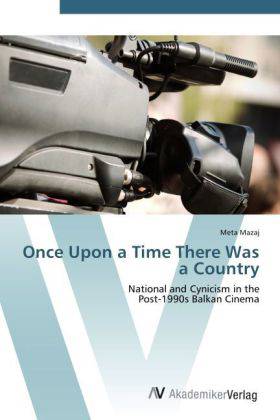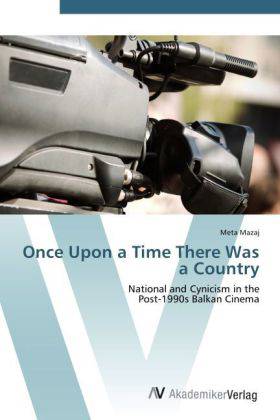
Bedankt voor het vertrouwen het afgelopen jaar! Om jou te bedanken bieden we GRATIS verzending (in België) aan op alles gedurende de hele maand januari.
- Afhalen na 1 uur in een winkel met voorraad
- In januari gratis thuislevering in België
- Ruim aanbod met 7 miljoen producten
Bedankt voor het vertrouwen het afgelopen jaar! Om jou te bedanken bieden we GRATIS verzending (in België) aan op alles gedurende de hele maand januari.
- Afhalen na 1 uur in een winkel met voorraad
- In januari gratis thuislevering in België
- Ruim aanbod met 7 miljoen producten
Zoeken
Once Upon a Time There Was a Country
National and Cynicism in the Post-1990s Balkan Cinema
Meta Mazaj
Paperback | Engels
€ 70,29
+ 140 punten
Omschrijving
Revision with unchanged content. The 1990s were in many ways the Balkan decade, as the break-up of Yugoslavia returned the Balkans to the center of Western consciousness. While journalism has been the most important channel of constructing a perception of the war, this perception has also been based on films that deal with the conflict. The body of film productions about the Balkan conflict is a truly international project which engaged a large international community of filmmakers; still, most features come from the countries of former Yugoslavia: Before the Rain (1994); Underground (1995); Pretty Village, Pretty Flame (1996); Perfect Circle (1997); Powder Keg (1998); No Man's Land (2001), to name only a few. It is these films that have created in the West a sustained perception about the Balkans and in the process have constructed a complex perspective on Balkan nationalism. This study explores how Balkan nationalism, already a tainted and ambiguous, took a different shape in the post 1990s Balkan cinema, which critically intervened into both the discourse of Balkanism and internal calls for nationalism. Opening up key questions about nationalism and cinema today, the study is addressed to anyone interested in film and nationalism, national cinemas and their relationship to a global/-world cinema.
Specificaties
Betrokkenen
- Auteur(s):
- Uitgeverij:
Inhoud
- Aantal bladzijden:
- 176
- Taal:
- Engels
Eigenschappen
- Productcode (EAN):
- 9783639449181
- Verschijningsdatum:
- 31/07/2012
- Uitvoering:
- Paperback
- Formaat:
- Trade paperback (VS)
- Afmetingen:
- 152 mm x 229 mm
- Gewicht:
- 267 g

Alleen bij Standaard Boekhandel
+ 140 punten op je klantenkaart van Standaard Boekhandel
Beoordelingen
We publiceren alleen reviews die voldoen aan de voorwaarden voor reviews. Bekijk onze voorwaarden voor reviews.









